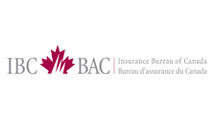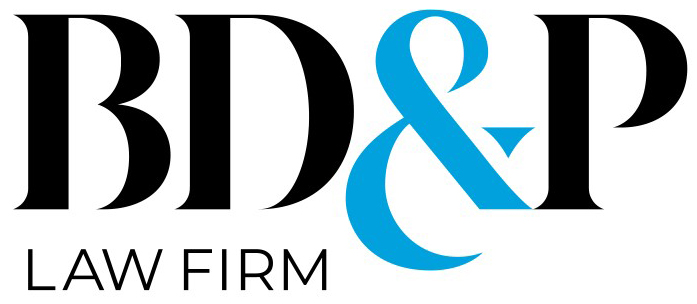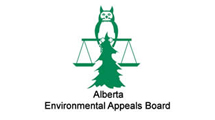
Striking the Balance – UK Supreme Court Rules on an Arbitrator’s Duty of Disclosure
By Timothy St. John Ellam and Alison Bond
 The UK Supreme Court’s decision Halliburton Company (Appellant) v Chubb Bermuda Insurance Ltd (Formerly known as Ace Bermuda Insurance Ltd) (Respondent) [2020] UKSC 48 provides much needed clarity about the circumstances giving rise to the duty of an arbitrator to disclose potential conflicts of interest. The decision upholds the central pillars and advantages of arbitration and balances these with the circumstances in which disclosure of a potential conflict of interest should be made.
The UK Supreme Court’s decision Halliburton Company (Appellant) v Chubb Bermuda Insurance Ltd (Formerly known as Ace Bermuda Insurance Ltd) (Respondent) [2020] UKSC 48 provides much needed clarity about the circumstances giving rise to the duty of an arbitrator to disclose potential conflicts of interest. The decision upholds the central pillars and advantages of arbitration and balances these with the circumstances in which disclosure of a potential conflict of interest should be made.
The UK Supreme Court’s decision Halliburton Company (Appellant) v Chubb Bermuda Insurance Ltd (Formerly known as Ace Bermuda Insurance Ltd) (Respondent)[1] provides much needed clarity about the circumstances giving rise to the duty of an arbitrator to disclose potential conflicts of interest.
The arbitral proceedings arose out of the Deepwater Horizon oil spill in the Gulf of Mexico in 2010. Mr. Rokison had been appointed by the London High Court when the parties could not reach agreement about who should be appointed as the Chairman of the arbitral panel.
After Mr. Rokison’s appointment to the arbitral tribunal, he was appointed to two further arbitrations related to the Deepwater Horizon incident. In one of these arbitrations, Mr. Rokison was party-appointed by Chubb, the Respondent in the arbitration leading to this decision.
As a result of Mr. Rokison’s further appointments, Halliburton ultimately applied for an order under section 24(1)(a) of the Arbitration Act 1996 that Mr. Rokison be removed as an arbitrator on the basis that there was a real possibility that he was not impartial. Halliburton’s claim was dismissed by the English High Court and Court of Appeal. Halliburton subsequently appealed to the UK Supreme Court.
The key issues to be decided by the Supreme Court in this appeal were:
- Whether an arbitrator’s acceptance of multiple appointments involving a common party (i.e. Chubb) and same or overlapping subject matter (i.e. liability for insurance claims arising out of the Deepwater Horizon incident) could give rise to an appearance of bias by the arbitrator.
- Whether and to what extent an arbitrator can accept such appointments without disclosing them.
The Supreme Court unanimously dismissed Halliburton’s appeal. The Court held that:
- Whether the acceptance of multiple appointments involving a common party and the same or overlapping subject matter gives rise to the appearance of bias will depend on the facts of the case and the relevant field of the arbitration.
- If there is a real possibility of bias, unless the parties agree otherwise, the arbitrator is under a legal duty to disclose the relevant appointments to the parties.
Significance of Supreme Court’s decision for arbitral parties
The Supreme Court’s decision is significant for parties to international arbitration proceedings for the following reasons:
First, there was a recognition by the Supreme Court that arbitrators are often appointed to arbitrations arising from the same subject matter and bias cannot automatically be inferred from such appointments. One of the key reasons that parties often choose to arbitrate is to be able to have an arbitrator or arbitral panel with subject matter expertise. The UK Supreme Court’s decision balances that key advantage while setting out the circumstances in which a disclosure must be made.
Second, the Court was clear that the International Bar Association Guidelines on Conflicts of Interest in International Arbitration 2014 (the “IBA Guidelines”), which Halliburton said put Mr. Rokison under a legal obligation to disclose his later appointments, do not give rise to legal obligations. The Court said that the IBA Guidelines “set out good arbitral practice which is recognised internationally…[and] they can assist the court in identifying what is an unacceptable conflict of interest…But the IBA Guidelines do not of themselves give rise to legal obligations or override national law or the arbitral rules chosen by the parties.”[2]
From a practitioner’s perspective, the Court’s comments on the weight of the IBA Guidelines is significant. On the issue of conflict of interest, they codify good arbitral practice and can be used as a guide regarding acceptable and unacceptable conduct.
Third, the Court carefully balanced the legal duty of disclosure with the duties of confidentiality and privacy of an arbitration – central pillars of this dispute resolution mechanism. If a disclosure needs to be made, the Court set out the steps that must be taken when an arbitrator seeks a further arbitral appointment in a later arbitration concerning overlapping subject matter.
It remains to be seen how the UK Supreme Court’s decision will play out in practice. At the very least, the Supreme Court’s decision will cause arbitrators to pause before accepting appointments with a common party or overlapping subject matter. Arbitral parties and arbitrators will rely on the Supreme Court’s decision in identifying the circumstances in which a disclosure should be made to avoid allegations of conflict of interest.
[2] [2020] UKSC 48, at para. 71.
Timothy St. John Ellam, QC, FCIArb is a Partner in the Litigation group of McCarthy Tétrault in Calgary, Alberta and London, UK and is co-chair of the Firm’s international arbitration practice group. Mr. Ellam is a member of the Law Society of Alberta and The Law Society of England and Wales.
Alison Bond is an Associate in the Litigation group of McCarthy Tétrault in Toronto, Ontario and is a member of the firm’s international arbitration group. Ms. Bond is a member of the Law Society of Ontario and The Law Society of England and Wales.












